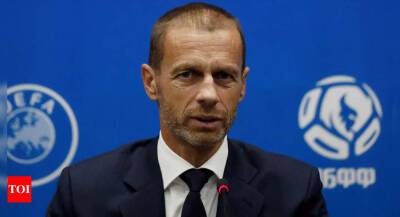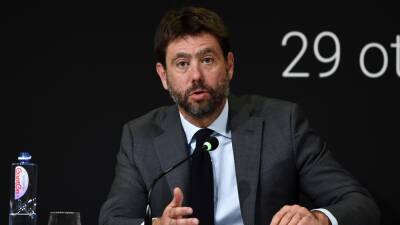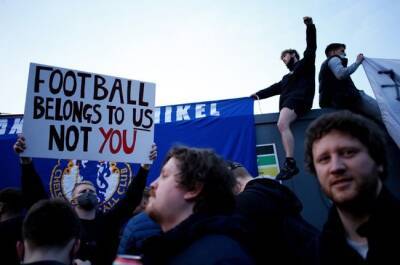A 'nonsense idea' but is Super League still possible without English clubs?
Juventus chairman Andrea Agnelli avoided the question when asked if he could envisage a Super League without English clubs.
«I haven't heard the words Super League as much as I have done today,» he said, speaking at the FT Business of Football Conference in London.
The answer felt like it was part of a strategy. The unravelling of the European Super League (ESL) project last April, barely 48 hours after it was launched, was so quick, amid so much opposition, it felt like it could never come back.
On Wednesday, former England and Manchester United defender Gary Neville warned ESL had «not gone away».
Then on Thursday morning, Uefa president Aleksander Ceferin spoke of «a nonsense idea» launched in the middle of a pandemic being launched again «in a war». «They must live in a parallel world,» he added.
An hour later, La Liga president Javier Tebas spoke of a recent meeting between Agnelli, Real Madrid president Florentino Perez and Barcelona counterpart Joan Laporta at the Italian's home. If the trio denied it, said Tebas, they were lying, before adding: «They lie more than Putin.»
Agnelli said he wasn't willing to take questions about Tebas' comments when he was the final speaker at the conference on Friday. But his avoidance of the topic merely heightened a feeling that has been obvious to anyone who has covered the two days, Neville is right, ESL is not dead.
A 12-team Super league, featuring six Premier League clubs, was announced last year but all of the sides involved, except for Juventus, Real Madrid and Barcelona, pulled out after widespread protests from fans, politicians and governing bodies.
Those three sides still in favour have taken the matter to the courts and the case is set to go to the European Court of Justice







